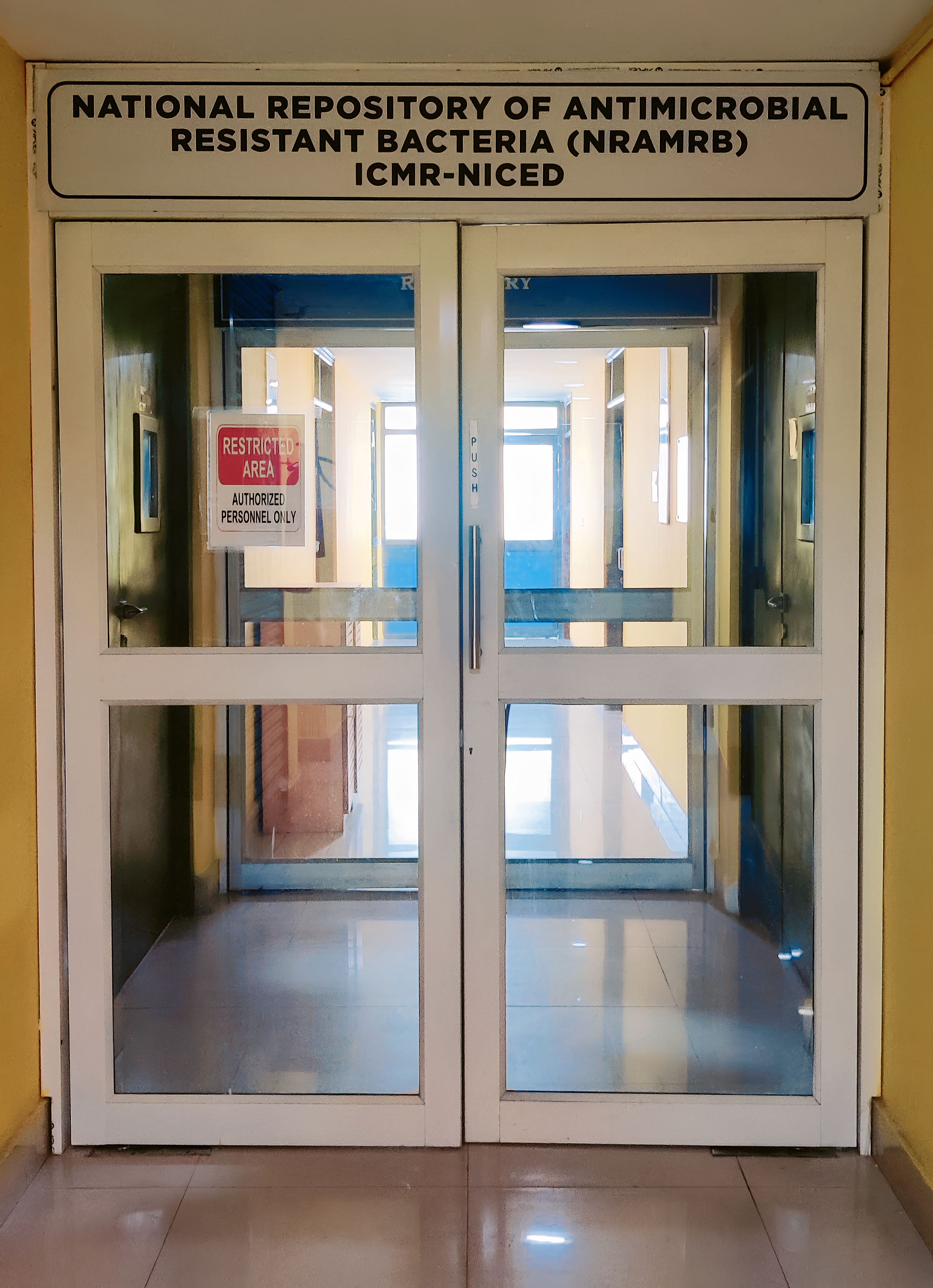The National Repository of Antimicrobial Resistant Bacteria (NRAMRB) is a pioneering initiative under the National Antimicrobial Resistance (AMR) Hub, established at ICMR-National Institute for Research in Bacterial Infections (ICMR-NIRBI) in 2019. Funded by the Indian Council of Medical Research (ICMR), this repository serves as a centralized facility dedicated to addressing the growing challenge of antimicrobial resistance (AMR) across India.
NRAMRB houses well-characterized antimicrobial-resistant bacterial isolates collected from diverse regions and clinical specimens nationwide. This comprehensive repository is a vital resource for advancing research, accelerating the development of new antibiotics, therapeutics, and vaccines, and fostering innovative solutions to combat AMR.
By providing a unique platform for collaboration and knowledge exchange, NRAMRB plays a crucial role in bridging the gap between AMR surveillance, research, and intervention strategies. It aims to empower scientists, healthcare professionals, and policymakers with the resources needed to mitigate the AMR crisis across the nation and safeguard public health.
The collection
The repository houses a diverse collection of antimicrobial-resistant Gram-negative and Gram-positive organisms, including Escherichia coli, Klebsiella pneumoniae, Salmonella Typhi, Non-typhoidal Salmonella, Pseudomonas aeruginosa, Acinetobacter baumannii, Shigella spp, Staphylococcus aureus, Enterococcus faecium, and Enterococcus faecalis. Unlike traditional culture collections, this repository is uniquely dedicated to antimicrobial-resistant pathogens, serving as a specialized resource to support research, surveillance, and the development of new therapeutic strategies against drug-resistant infections.

